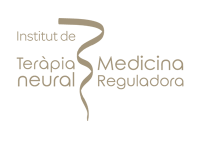Best Detox Cleanse
12 Minutes
This trendy buzzword “Detox Cleanse” has been bandied around quite a bit. If you want to get rid of your body’s toxins, this is the way to go. If you want to feel lighter, and more energized, and jumpstart your healthy lifestyle, a full-body cleanse a detox is a great option.
Detoxes and cleanses, which purify the body of impurities, are frequently touted for their purported health benefits. A variety of detox programs, including periods of fasting, diets, drinks, or powders, have been claimed as effective.
Toxin removal may offer several advantages, including the following:
- Increased vitality.
- Loss of weight.
- Constipation relief.
- Muscle aches, headaches, and weariness are improved
Yet, not all full-body detox diets are made equal, and some may even be harmful to your health in the long term. A lot more research is needed before it’s safe to say that cleansing your body of heavy toxins is the solution.
Toxins can be flushed out of your system, frequently through a special fluid diet with plenty of water, and offering your digestive system a rest from its full-time job, can bring about remarkable outcomes such as weight loss and improved vitality.
What do you need to do first? Take a look at our guide on how to properly detox and the best ways to do it. The following are some of our favorite detox methods, as well as a few things to avoid. The research we’ve done can help you decide what’s best for you, so let us lead the way. This is not something you want to miss.
Detoxification as we know it now has its roots firmly planted in the world of naturopathy. The term “detoxing” has been used in the medical community to describe the treatment of serious illnesses, like kidney failure or alcohol poisoning, since the early 1990s. “Eating clean” has become a popular trend in homeopathic circles, where the idea of cleansing the body and draining out toxins has taken root and grown alongside it.
A detox diet is a short-term nutritional approach that aims to rid your body of harmful waste products and toxins. Fasting and a healthy diet are usually part of the process. Drinking lots of water, fresh juices, and possibly supplements is customary for such detoxes.
Detox diets claim to:
- Boost your liver’s ability to flush out toxins
- Take a break from your body’s processes by fasting.
- Encourage the removal of toxins from the physiological systems
- Boost the flow of blood throughout the body.
- Add some much-needed vitamins and minerals to your diet
Toxins are said to be removed from the body during cleanses. Supposedly, this allows your digestive system a rest, allowing it to recover and effectively absorb the nutrients in the future. Drinks such as maple syrup, water with lemon, green tea, cayenne pepper, and vegetable or freshly squeezed orange juices are frequently substituted for solid foods. There is a wide range of lengths of time for cleanses.
There are many other kinds of cleanses out there that claim that our bodies are being negatively affected by nonspecific toxins, such as pesticides, pollution, and other chemical pollutants found in non-organic foods. Fasting or avoiding particular foods (such as sugar, alcohol, gluten, or dairy) for a set time is commonly combined with vitamin- and calorie-fortified juices or other beverages as a means of curing various ailments. Many famous cleanses and detoxes call for the use of large amounts of water.
There are three main categories of detox plans: those that substitute solid food with liquid food (smoothies, juices, or soups, often with herbal remedies rolled in); those that supposedly support your body’s natural detox systems by providing nutrients that boost kidney and liver function, and those that emphasize cleansing your digestion process from the other end, the colon.
A detox diet can be done in a variety of ways, from complete starvation fast to a few minor meal changes.
Most top-rated detox cleanses typically include at least one of the following components:
- One to three days of fasting.
- The consumption of juices, smoothies, and water, as well as teas made from fresh fruits and vegetables.
- Restricting oneself to only certain types of liquids, like lemon juice or salted water.
- Toxic and allergenic food sources are avoided.
- Taking herbal or dietary supplements.
- Take a gradual approach to reintroduce foods that may cause an allergic reaction.
- Enema, laxative use, and colonic irrigation
- Regularly working out.
- Avoid all alcoholic beverages, caffeine, tobacco, and refined sugars.
Different detox diets have varying levels of intensity and length.
The following are some of the best detoxes cleansess for the whole body.
Liver Cleanses
After a night of heavy drinking, you’re feeling a little sluggish. As a general rule, drinking enough water and eating a well-balanced diet will suffice, but some people seek out alternative options, like liver cleanses. There are many ways to accomplish this, including taking supplements, going on a severe detox, or fasting, among others. However, is it the best way to cleanse your body of toxins?
Research as to how the liver cleanses to eliminate toxins from the body is lacking at the moment. Avoiding regular and heavy alcohol intake, processed meals, and saturated fats is the best approach to preserve your liver health. Adding nutritious meals and drinks to your diet can have a significant impact on your health as well.
Turmeric and milk thistle are natural liver cleanser ingredients to seek for. Inflammatory diseases of the liver can benefit from the use of these well-known liver cleansing supplements. In addition to having anti-inflammatory qualities and being filled with antioxidants, both herbs are all-natural.
Colon Cleanses
Some techniques of detoxification, on the other hand, focus on bowel movement cleansing. Taking laxatives, whether natural or synthetic, and eating meals that aid digestion is common components of this strategy. Enemas may also be included in some colon cleanses. As a general rule, these kinds of cleanses do more harm than good.
Additionally, they have been shown to cause dehydration as well as nausea, cramps, and bloating in addition to killing healthy bacteria in the digestive tract. The reason for this is that these aren’t the best detox cleanses.
Fasting
It is one of the oldest and most spiritual ways to cleanse the body. It entails going without eating for a length of time and only consuming water. Ramadan, Lent, and Yom Kippur are just a few of the many religious fasting traditions that are observed. Those who practice Hinduism or Buddhism fast as well.
Numerous health advantages have been linked to intermittent fasting. In addition to lowering blood sugar levels and enhancing cognitive function and blood pressure, it may also assist to ward off some ailments in advance. Despite the need for further study, studies have shown that fasting can be an effective method of overcoming some ailments. Fasting isn’t required for most individuals, but if you must do it, you should limit how often you do it.
With the above-mentioned background in perspective, you might be thinking, “What is the best detox cleanse?” Juice cleansing, as the name suggests, is a diet that consists solely of freshly squeezed fruit and vegetable juices. Some cleanse last as little as two days and as long as two weeks, depending on your personal preferences. For a full-body detox, they’re usually loaded with specific vegetables like kale, parsley, and celery.
Cleansing your body with juice might help you feel more energized, gain more nutrients, and lose weight. Plus, it’s a great way to feel well and look beautiful. If you’re not a big fan of fruits and vegetables, this is the perfect detox cleanse for you to receive some extra nutrients from natural sources.
What are the benefits of juicing as a detox cleanse? Additionally, it is an excellent way to get enough nutrients into your system at once. Vegetable and fruit juices have been demonstrated to increase levels of vitamins and antioxidants. Vitamin E, folate, and beta carotene are a few examples.
When it comes to providing your body with an abundance of nutrients, juicing is fantastic — as long as you don’t go overboard! Going without a lot of calories, protein, and fiber for an extended period can have the opposite impact intended. A one-week full-body cleanse and detox is ideal if you’re trying to avoid allergens. Next, introduce other food groups like avocados, nuts, and seeds to increase your intake of healthy fat-rich foods. If you’d like, you can also include some wonderful soups in your diet.
It’s up to you whether you want to produce your juicing detox at home or buy it ready-made. It is important to know that cold-pressing protects all of the key enzymes and nutrients in juices, making them the healthiest option.
When it comes to removing toxins from your body, the kidneys, liver, and perspiration are all at your disposal to do the job. There are, however, a few things you can do to help it work better for you and enhance your general well-being in the process.
Drinking a lot of water, exercising, abstaining from alcohol, and adequate sleep all contribute to the removal of toxins from the body. Even though things seem self-evident, it’s a good idea to keep them in mind.
Diets that purify the body of toxins are thought to boost overall health and facilitate weight loss.
The use of natural remedies, diuretics, vitamins, and minerals as well as teas and other foods with purifying effects is common in these procedures.
An undefined concept, the term “toxin” is used in the context of detox diets. Pollutants, heavy metals, industrial chemicals, and processed foods are among the substances commonly found in the environment.
Even if some detoxes are beneficial, others rarely define the precise toxins they are meant to remove or the method by which they supposedly eradicate them.
You may boost your body’s natural detoxification mechanism as well as detox diets by making the following lifestyle and nutritional modifications.
- Consume a moderate amount of alcohol.
- Concentrate on getting adequate sleep.
- Drink a lot of water!
- Consume less processed meals and less sugar.
- Consume meals high in antioxidants.
- Eat prebiotic-rich meals.
- Reduce the amount of salt you eat.
- Keep your body and mind active.
Listed below are some other suggestions for detoxification.
Consume foods high in sulfur. Heavy metals like cadmium can be excreted more easily if you eat foods high in sulfur, such as onions, broccoli, and garlic (58Trusted Source).
Try chlorella. According to animal studies, the algae chlorella offers numerous nutritional advantages and may help the body eliminate pollutants like heavy metals.
Cilantro can be used to season food. Insecticides and heavy metals like lead are among the poisons whose excretion is aided by the use of cilantro.
Enhance the body’s production of glutathione. Sulfur-rich foods, such as eggs, garlic, and broccoli help your body’s antioxidant glutathione perform better, which is crucial for detoxification.
Use natural cleaning agents instead. Limit your exposure to potentially hazardous chemicals by using natural cleaning items like baking soda and vinegar instead of commercial goods.
Natural body care products. These are better for your health and the environment. It’s also possible to lessen your exposure to chemicals by using natural deodorants, cosmetics, shampoos, moisturizers, and other personal care items
Detox diets may leave some people feeling more engaged and energized. However, you may be feeling better because you’ve cut out processed meals, alcohol, and other bad things from your diet altogether.
Additionally, you may be receiving minerals and vitamins that you were previously deficient in. It’s worth noting, however, that several people report feeling sick during the detox period.
Effects On Weight Reduction
Detox diets haven’t been studied extensively in terms of how they affect weight loss.
The rapid weight loss seen in certain persons may be attributable to the loss of fluid and carbohydrate storage rather than fat, according to the findings of this study. Once you stop the cleanse, you’ll likely recover the weight you lost.
For seven days, a diet consisting solely of organic palm or maple syrups and lemon juice was studied in a study of obese Korean women.
Weight loss was observed in all of the following areas: body mass index (BMI), body fat percentage (BFP), waist-to-hip ratio (WHR), waist circumference (WCI), inflammatory markers, and systemic leptin levels.
You should expect to lose weight and enhance your metabolic health, but it’s unlikely to help you keep it off in the long run if your detox diet involves significant calorie restriction.
Short-Term Fasting, Detox Diets, and Stress
Short-term or periodic fasting’s effects can be replicated by a variety of detox diets. Many disease markers, notably insulin and leptin sensitivity, may be improved in some individuals by short-term fasting.
Yet, not everyone is affected in the same way. Stress hormone levels have been shown to rise during both a two-day fast and a 3-week calorie restriction in women, according to research.
Crash diets can also be a frustrating process because they require you to resist temptations and endure extreme hunger.
There are several components of the best body cleanses and detoxes that may be beneficial to health, such as:
- The avoidance of heavy metals in the diet
- Reducing one’s body fat
- Regular physical activity and perspiration
- A diet of whole, nutritious, and healthy food
- Limiting your intake of foods that have been processed
- Staying hydrated by drinking loads of lemon water or green tea
- A healthy lifestyle minimizes stress, relaxes the body, and gets a good night’s sleep
In general, adhering to these principles can lead to better health, irrespective of whether or not you are on a detox diet.
It’s critical to think about the potential side effects of any detox before embarking on it.
Dietary deprivation to the Nth degree
Many detox diets call for severe or fasting calorie restriction as a means of removing toxins from the body. Fatigue, irritation, and poor breath can all be side effects of fasting for a short period.
Even death can happen from long-term fasting if the body is deprived of energy, vitamins, and minerals.
Detoxes can produce dehydration, cramps, nausea, bloating, and vomiting as a result of colon cleansing techniques.
Overdosing
Certain detox diets may put people at risk of overdosing on vitamins, diuretics, laxatives, and even water.
In the detox sector, there is a lack of oversight and supervision, and many detox meals and supplements may not be based on scientific research at all.
There are certain detox products whose ingredient labels are inaccurate. The risk of overdose can increase, perhaps leading to serious or even deadly consequences.
Populations at risk
Before embarking on any detox or calorie-restricting diet, it is important to see a physician.
Adults, pregnant and breastfeeding women, children, and those with blood sugar disorders like diabetes or anorexia are all at-risk populations for obesity.
FAQs
Is It Hard To Undergo A Cleanse/Detox?
Yes, is the short answer. It does, however, necessitate your dedication and concentration, as with anything truly valuable. There are a variety of detox programs available, each with varying degrees of difficulty. Slow and steady wins the race when it comes to getting rid of harmful compounds and microbes.
Plunge too deep and your body may be overwhelmed, leading to what is known as a “toxic rush.” This could cause headaches, fatigue, and a general feeling of unease.
What Must Be Cut Out Absolutely If I Am Serious About Detoxing?
Drinking, smoking, and using recreational drugs. The idea is to detox the organs—the gut, lungs, skin, and liver—a time to catch up and recuperate from the overload.
Is A Cleanse/Detox Program Going To Make Me Feel Better?
Before and after the detox program, you’ll notice a big change, but you may also begin to feel worse before things start to get better. This is quite natural. To get the most out of the cleanse, the plans are backed by an activity and healing schedule that has been meticulously developed.
HOW SENSES CAN HELP WITH Detox
Senses is a leading provider of luxury addiction and mental health treatment for affluent individuals and their families, offering a blend of innovative science and holistic methods with unparalleled individualised care.
A UNIQUE METHOD
successful and proven integrative holistic conceptOur program consists of treating only one client at a time individually designed to help you with all the problematic aspects of your life. All individual treatment sessions will be held at your private residence.
more infoYour program is designed based on your personal needs. The team will exchange daily information and adjust the schedule as we go. Our therapists will work with you treating integrative not just the symptoms and goes beyong your stay to ensure lasting success.
more infoOur biochemical imbalance can be affected by diet and stressful life events, but it often goes back to genetics and epigenetics. We do specific biochemical laboratory testing to determine an individual’s biochemical imbalance. Combining the results of the lab tests with anamnestic information and clinical tests, we prescribe an individualized and compounded vitamin, mineral, nutrient protocol to help recover from various disease states.
more infoOur experts combine the best from psychological treatment, holistic medicine to support you individually and providing complementary therapies all coordinated from one source working complementing each other integrative.
more infoUsing latest cutting-edge technology-based therapies such as Neurofeedback, tDCS, and SSP, we can track the biological patterns of your body, giving us valuable insight into your health and well-being as well support your brain and body performance and recovery with neuromodulation.
more infoOur chef and nutrition specialist will design your personalized diet plan supporting your body & mind recovery as well as helping with weight management. Nutrition workshops and mindful eating sessions will help you to maintain a healthy lifestyle.
more infoDetox TREATMENT LASTING APPROACH
0 Before
Send Request
0 Before
Define Treatment Goals
1 week
Assessments
1-4 week
Integrative Holistic Therapies
5-12 week
Aftercare
12+ week
Refresher Visit
Detox Insights
latest news & research on DetoxZeolite Detox
A zeolite detox utilizes a particular chemical called aluminosilicate to enable comprehensive body toxin purification. Unlike most other colon clearing detoxes, zeolite detoxes do not comprise of fiber,
read moreLiver Detox Foods
When it comes to detoxifying your liver, alcohol isn't the only thing you should avoid. Additionally, your liver's health might be jeopardized by a variety of other foods.
read moreAccreditations



























































